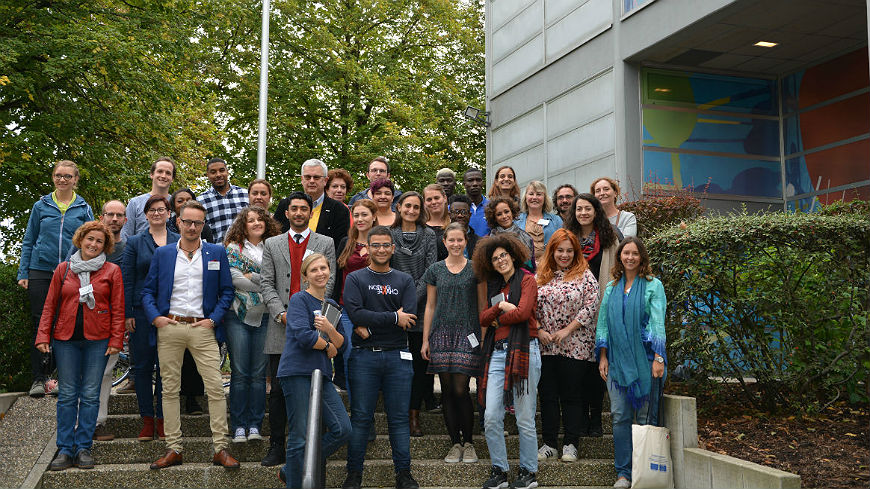In the European landscape of the youth sector in particular, there is a growing understanding of the role that the youth sector has for young refugees and migrants, by contributing to their participation and inclusion through youth work, by supporting their situation through co-operation with different sectors, and by developing a better understanding of the experiences of young refugees and migrants, through youth research.
The youth sector is just one among several that address, in one way or another, the situations of young refugees and migrants. However, in several cases, on the national level, the youth sector is less recognised as an important partner when discussing the situation of young refugees and migrants. Those more likely to address these situations vary from actors in the asylum process (reception centres, legal services), education, health, housing, children and family, social work, justice, security, and so on. A variety of state and non-state organisations or groups (such as humanitarian organisations, human rights organisations, faith groups, etc.) are working with this group. While not being exhaustive, this list already testifies of the diversity of professionals and sectors that have an impact and role in young refugees and migrants’ lives. Their co-ordination and their capacity to work together is key in ensuring that the young person has a space where their dignity and rights are respected and in which they can understand and be the main protagonists of their “new beginning” in Europe.
This seminar intended to strengthen cross-sectoral co-operation among those working with young refugees and migrants. It created a space for different sectors to discuss their work, their challenges and how cross-sectoral work could support their interventions. It also created a space for recent knowledge developed in the youth field to be presented and discussed.
Aim and objectives
The seminar aimed to make a contribution to the access to rights of young refugees and migrants by offering a space for different sectors to understand the situation of this group and to build cross-sectoral bridges, on the basis of the knowledge developed by different fields, and particularly the youth field.
The seminar had the following objectives:
- Develop a better understand of young refugees and migrants’ situation and how different sectors work with this group, also building on the knowledge developed in the youth field
- Create a space for mutual understanding and synergies among different actors acting in one way or another for young refugees and migrants
- Disseminate and learn from good practices of cross-sectoral co-operation and of working with young refugees and migrants
- Identify gaps in intervention for further planning and development in different fields.
Profile of participants
The seminar involved 60 participants, with the following profiles:
- Working for public authorities or non-governmental organisations and other non-state actors, at all levels, from European to local, with a relevance for working with young refugees and migrants
- Working in one of the following fields: youth, migration, social welfare, education and training, labour market policy, health and wellbeing, child protection, justice, etc.
- Having specific experience or interest in the situations of young refugees and migrants.

